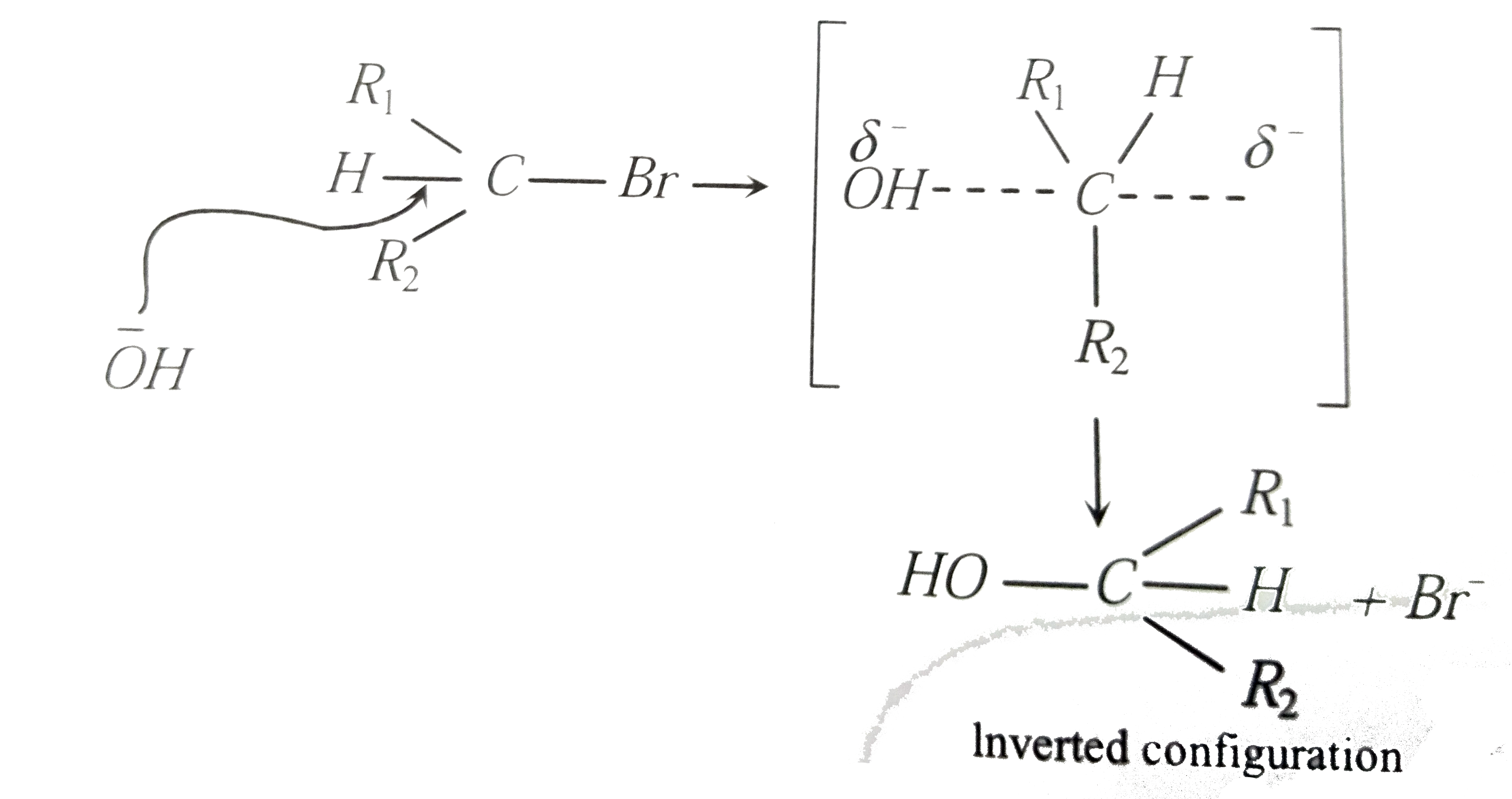Alkyl halides undergoing substitution nucleophilic bimolecular reaction involves
Formation of carbocation
Racemic mixture
Inversion of configuration
Retention of configuration
The correct Answer is:C
SN2 reactions take place via inversion of configuration

Similar Questions
Knowledge Check
Which of the following alkyl halide undergoes a nucleophilic substitution reaction via formation of a carbocation ?
A1-Chloro-2-methylpropaneB2-Chloro-2-methylpropaneC2-ChlorobutaneD1-Chloro-3,3-dimethylpentaneNucleophilic substitution reactions are of two types, substitution nucleophllic bimolecular (SN2) and substitution nucleophilic unimolecular (SN1) depending on molecules taking part in determining the rate of reaction. Reactivity of alkyl halide towards SN1 and SN2 reactions depends on various factors such as steric hindrance, stability of intermediate or transition state and polarity of solvent. SN2 reaction mechanism is favoured mostly by primary alkyl halide then secondary and then tertiary. This order is reversed in case of SN1 reactions.
SN1 reaction is fastest inA1∘ alkyl halideB2∘ alkyl halideC3∘ alkyl halideDNone of the aboveNucleophilic substitution reactions are of two types, substitution nucleophllic bimolecular (SN2) and substitution nucleophilic unimolecular (SN1) depending on molecules taking part in determining the rate of reaction. Reactivity of alkyl halide towards SN1 and SN2 reactions depends on various factors such as steric hindrance, stability of intermediate or transition state and polarity of solvent. SN2 reaction mechanism is favoured mostly by primary alkyl halide then secondary and then tertiary. This order is reversed in case of SN1 reactions.
SN1 reaction is fastest inA1∘ alkyl halideB2∘ alkyl halideC3∘ alkyl halideDNone of the above
Substitution Nucleophilic Unimolecular Reaction (SN1) and Substitution Nucleophilic Bimolecular Reaction (SN2)
View SolutionSome alkyl halides undergo substitutionn whereas some undergo elimination reaction on treatment with bases. Discuss the structural features of alkyl halides with the help of examples which are responsible for this difference.
View SolutionSome alkyl halides undergo substitution whereas some undergo elimination reaction on treatment with bases. Discuss the structural features of alkyl halides with the help of examples which are responsible for this difference.
View SolutionSome alkyl halides undergo substitution reaction whereas some undergo elimination reaction on treatment with bases. Discuss the structural features of alkyl halides with the help of examples which are responsible for this difference.
View SolutionNucleophilic substitution reactions are of two types, substitution nucleophllic bimolecular (SN2) and substitution nucleophilic unimolecular (SN1) depending on molecules taking part in determining the rate of reaction. Reactivity of alkyl halide towards SN1 and SN2 reactions depends on various factors such as steric hindrance, stability of intermediate or transition state and polarity of solvent. SN2 reaction mechanism is favoured mostly by primary alkyl halide then secondary and then tertiary. This order is reversed in case of SN1 reactions.
SN1 reaction is fastest in
View Solution
